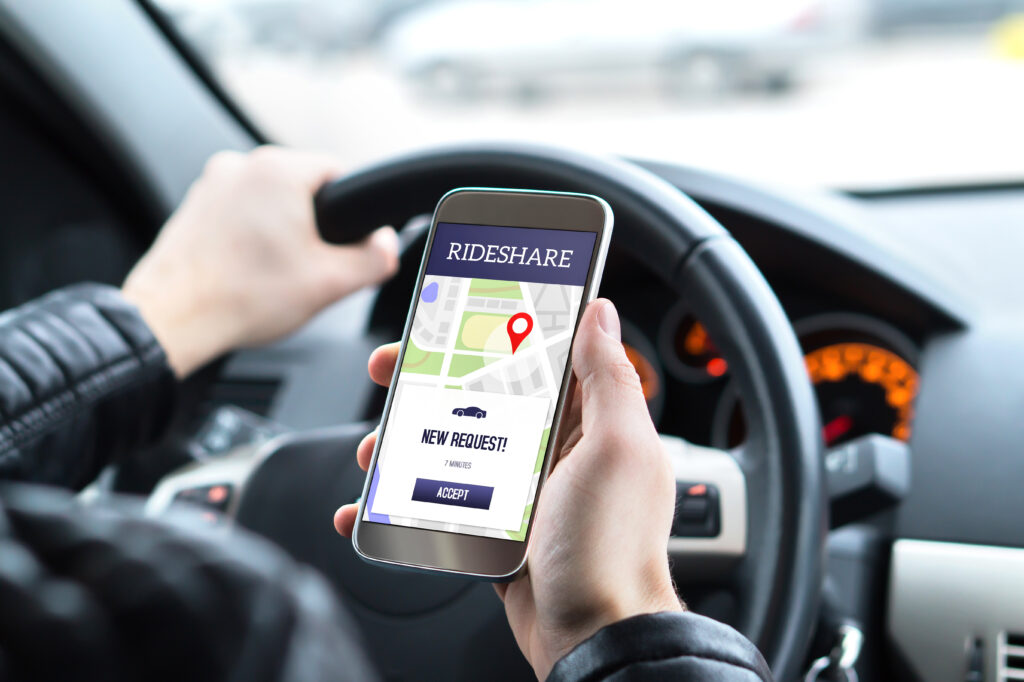Rideshare services like Uber and Lyft have become vital to many Texans’ daily lives, offering convenience and accessibility. But behind the ease of booking a ride lies a deeply troubling issue that has been growing alarmingly. Assault and sexual assault cases involving rideshare drivers are tragically becoming more common, leaving countless victims grappling with emotional and physical scars. These crimes turn what should have been a routine trip into a nightmare, shaking the trust of passengers and posing serious questions about accountability.
If you or a loved one has experienced a sexual assault while using a rideshare company, you have the right to take action. Working with a skilled personal injury attorney is not just about pursuing compensation; it’s about holding the responsible parties accountable and taking back your power. At Tracey Fox & Walters, the core of our commitment is an unwavering dedication to supporting survivors, ensuring you feel empowered, heard, and respected throughout the legal process. Every step taken by Tracey Fox & Walters’ attorneys is focused on restoring dignity and demanding accountability so that survivors can reclaim their sense of justice and security.
Understanding the Rise in Rideshare Sexual Assault Cases
The rise in rideshare sexual assault cases highlights a disturbing and often underreported reality within the industry. While services like Uber and Lyft claim to enhance convenience and safety, their platforms have become environments where devastating crimes can occur. Survivors of these assaults often face significant barriers when attempting to report their experiences, including dismissive responses, a lack of transparency from the companies, and the emotional toll of recounting their trauma.
Uber and Lyft Sexual Assault Statistics
Sparse reporting only exacerbates the issue, as many survivors choose not to come forward due to fear of stigma or distrust in the system. This lack of comprehensive data prevents the full scope of the problem from being addressed, despite evidence of its severity.
Below are some alarming statistics based on Uber and Lyft’s limited safety reports:
- Uber's 2021-2022 Safety Report revealed 2,717 incidents of sexual assault, with the majority of victims being riders.
- From 2019 to 2020, Uber documented 2,847 total sexual assault incidents across five misconduct categories.
- Lyft’s sole safety report (2017-2019) recorded 4,158 sexual assault reports, with over 1,000 cases involving non-consensual touching of a sexual body part in 2019 alone.
- Rideshare safety remains a pressing concern as thousands of assaults occur annually, despite apps touting safety features like emergency buttons and strict driver vetting processes.
Most of what is known about rideshare sexual assault cases comes from news outlets and viral social media coverage, rather than consistent reporting by the companies themselves. This lack of official transparency leads to devastating underreporting, creating a dangerous gap in public awareness about the risks associated with these platforms. Without a full understanding of the serious dangers, many continue to see rideshare services as a safe alternative when, in reality, they tragically fall short of that promise far too often.
What to Do If You’ve Been Assaulted in an Uber or Lyft
If you have been assaulted in an Uber or Lyft, it is essential to remember that you are not alone, and what happened to you is not your fault. Your voice matters, and seeking justice can help hold the perpetrator accountable while bringing about change in the rideshare industry. First, report the incident to law enforcement as soon as you feel safe to do so, and seek medical attention if needed. Document as much as possible, including details about the ride, the driver, and any communication with the rideshare company. Most importantly, consider reaching out to an experienced attorney who can guide you through the legal process with compassion and determination. Having someone in your corner who is dedicated to protecting your rights can make all the difference as you take steps toward reclaiming your sense of safety and justice.
Your Legal Rights in a Rideshare Sexual Assault Lawsuit
When it comes to rideshare sexual assault lawsuits, a critical question survivors often face is whether Uber or Lyft can be held liable for the actions of their drivers. These companies typically classify drivers as independent contractors, not employees, allowing them to argue that they are not legally responsible for drivers’ conduct.
With the help of a dedicated lawyer, you can explore your options, from filing a civil lawsuit to negotiating a settlement that addresses your trauma and long-term needs. After an assault in a rideshare, you should know your rights, such as:
- The right to pursue a civil lawsuit against the driver and potentially the rideshare company.
- The right to full disclosure of the rideshare company’s safety policies and the driver’s history.
- The right to compensation for medical expenses, emotional distress, and other damages related to the assault.
- The right to demand corporate accountability for failing to provide a safe environment for passengers.
- The right to be treated with dignity and respect throughout the legal process.
Legal experts can investigate whether the companies failed to follow proper safety protocols, such as conducting adequate background checks, responding appropriately to complaints, or implementing sufficient safety measures. These failures can be grounds for holding rideshare companies accountable, but they often vigorously fight such claims to distance themselves from liability.
Can Uber or Lyft Be Held Liable for Assaults by Drivers?
A central question for survivors of rideshare assaults is whether Uber and Lyft can be held legally responsible for the criminal actions of their drivers. Typically, these companies classify their drivers as independent contractors, a designation they often use to argue they are not liable for the drivers' misconduct. However, this is not the final word. Skilled legal counsel can investigate whether Uber or Lyft's negligence contributed to the assault. This includes examining their safety protocols, such as the thoroughness of background checks, their response to previous complaints against drivers, and the adequacy of their safety measures for passengers. If it can be demonstrated that the rideshare company failed in its duty to provide a reasonably safe service, they can indeed be held accountable in a personal injury lawsuit.
How a Personal Injury Lawsuit Can Help You
A personal injury lawsuit is designed to hold the perpetrator accountable while sending a powerful message to the rideshare companies about their responsibility to ensure passenger safety. Through legal action, survivors can secure financial support to manage medical costs, therapy, and other necessary expenses stemming from the assault. Additionally, a lawsuit empowers survivors to demand changes to company policies, pushing for stronger safety measures to protect future passengers.
Types of Compensation You May Be Entitled To
Compensation available through a personal injury lawsuit may include the following:
- Medical expenses, including emergency care, ongoing treatment, and therapy.
- Lost income and future earning potential if the assault impacts your ability to work.
- Emotional distress and trauma-related damages.
- Pain and suffering were caused by the attack and its aftermath.
- Punitive damages are to hold the perpetrator and responsible parties accountable for their negligence.
Skilled legal representation helps you build a solid case by gathering evidence, documenting the full extent of your damages, and navigating the often complicated legal process. Attorneys also provide emotional support, advocating for you every step of the way so you can focus on your healing.
Speak With a Texas Rideshare Sexual Assault Lawyer Today
If you’ve been assaulted during an Uber or Lyft ride, know this: you are not alone.You deserve a powerful advocate in your corner. At Tracey Fox & Walters, we offer more than legal representation. We provide unwavering support, strategic guidance, and a fierce commitment to helping you secure the maximum compensation you’re entitled to. Our team is here to stand by you, to fight for accountability, justice, and lasting change, not just for you, but for others who may face similar harm. From gathering critical evidence to holding both the attacker and the rideshare company responsible, we will be your voice every step of the way. Let us be your advocates in the fight for justice. Contact Tracey Fox & Walters today for a free, confidential consultation, and take the first step toward healing, empowerment, and reclaiming your future.
Frequently Asked Questions About Uber & Lyft Sexual Assault Lawsuits
How long do I have to file an Uber or Lyft sexual assault lawsuit in Texas?
The statute of limitations for filing a personal injury lawsuit in Texas, including those involving rideshare assaults, is typically two years from the date of the incident. However, every case is unique, and certain factors may impact this timeline. Consulting an attorney as early as possible ensures you don’t miss any critical filing deadlines.
Will my identity be kept confidential during the process?
Yes, survivors have options to protect their privacy. Courts often allow victims of sexual assault to proceed under a pseudonym, such as “Jane Doe” or “John Doe,” to keep their identity confidential. An experienced attorney can guide you through this process and ensure your identity remains protected while your case moves forward.
Can I sue if the driver wasn’t convicted criminally?
You can file a civil lawsuit even if the driver was not convicted or charged criminally. Civil cases have a lower burden of proof than criminal cases, enabling survivors to pursue justice based on evidence of negligence or wrongdoing. An attorney can help build a strong case that holds the driver and the rideshare company accountable.
What if the rideshare company denies responsibility?
Rideshare companies often argue that they are not liable for the actions of their drivers because drivers are classified as independent contractors. However, if the company failed to meet safety obligations, such as conducting thorough background checks or responding to prior complaints, it may still be held accountable. Your attorney can investigate and present evidence to challenge these defenses and fight for your rights.



